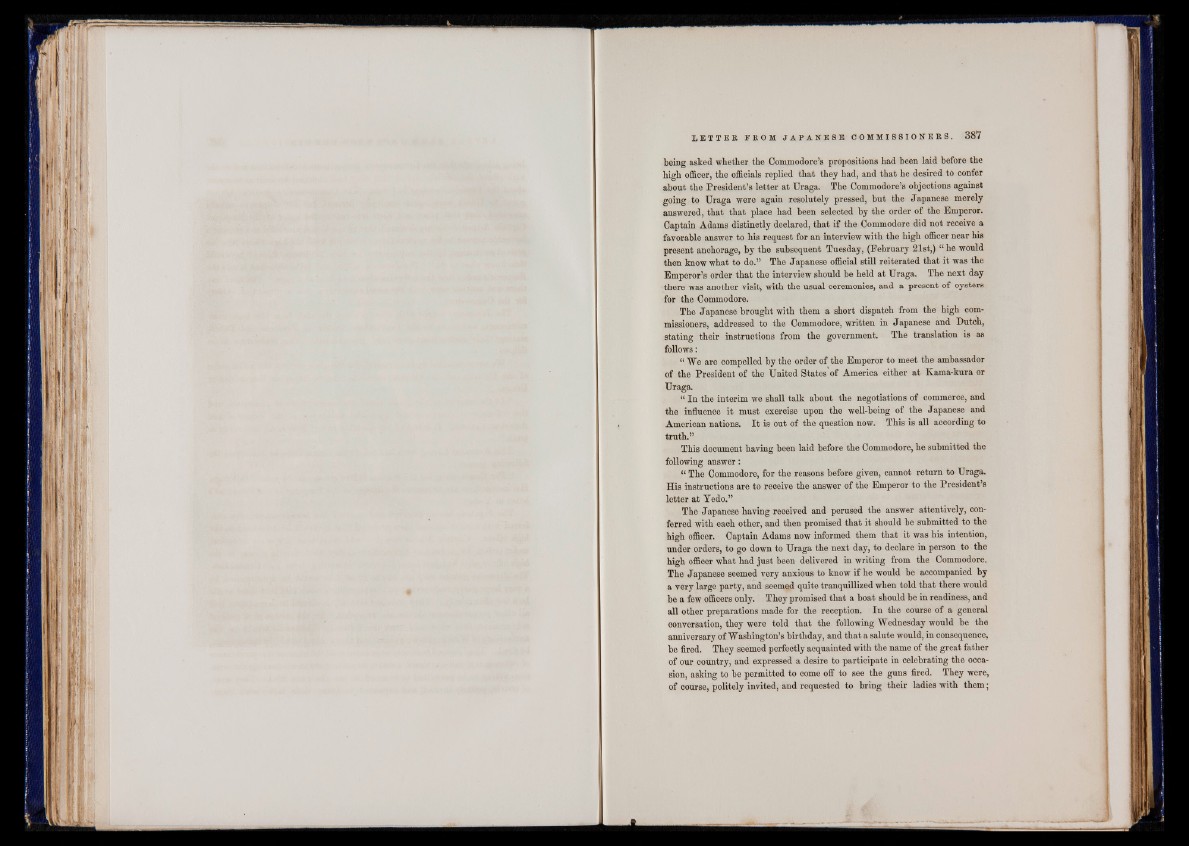
being asked whether the Commodore’s propositions had been laid before the
high officer, the officials replied that they had, and that he desired to confer
about the President’s letter at Uraga. The Commodore’s objections against
going to Uraga were again resolutely pressed, but the Japanese merely
answered, that that place had been selected by the order of the Emperor.
Captain Adams distinctly deolared, that if the Commodore did not receive a
favorable answer to his request for an interview with the high officer near his
present anchorage, by the subsequent Tuesday, (February 21st,) “ he would
then know what to do.” The Japanese official still reiterated that it was the
Emperor’s order that the interview should be held at Uraga. The next day
there was another visit, with the usual ceremonies, and a present of oysters
for the Commodore.
The Japanese brought with them a short dispatch from the high commissioners,
addressed to the Commodore, written in Japanese and Dutch,
stating their instructions from the government. The translation is as
follows:
“ We are compelled by the order of the Emperor to meet the ambassador
of the President of the United States of America either at Kama-kura or
Uragau
In the interim we shall talk about the negotiations of commerce, and
the influence it must exercise upon the well-being of the Japanese and
American nations. I t is out of the question now. This is all according to
truth.”
This document having been laid before the Commodore, he submitted the
following answer:
“ The Commodore, for the reasons before given, cannot return to Uraga.
His instructions are to reoeive the answer of the Emperor to the President’s
letter at Yedo.”
The Japanese having received and perused the answer attentively, conferred
with each other, and then promised that it should be submitted to the
high officer. Captain Adams now informed them that it was his intention,
under orders, to go down to Uraga the next day, to declare in person to the
high offioer what had just been delivered in writing from the Commodore.
The Japanese seemed very anxious to know if he would be accompanied by
a very large party, and seemed quite tranquillized when told that there would
be a few officers only. They promised that a boat should be in readiness, and
all other preparations made for the reception. In the course of a general
conversation, they were told that the following Wednesday would be the
anniversary of Washington’s birthday, and that a salute would, in consequence,
be fired. They seemed perfectly acquainted with the name of the great father
of our oountry, and expressed a desire to participate in celebrating the occasion,
asking to be permitted to come off to see the guns fired. They were,
of oourse, politely invited, and requested to bring their ladies with them;